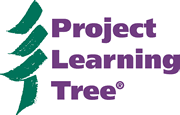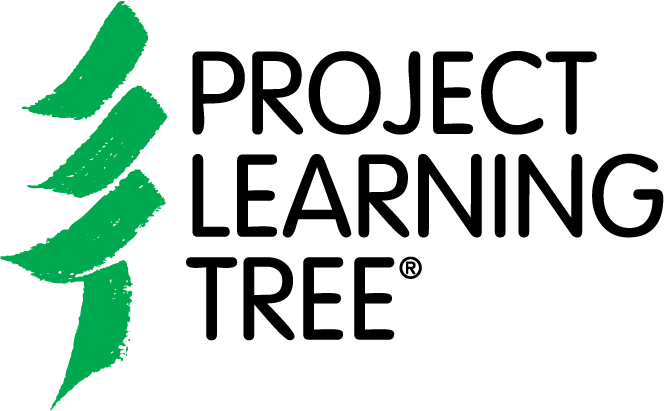-
Adaptations for Remote Learning: Activity 2, If You Were the Boss
To support you in teaching remotely we have adapted this activity for the virtual environment. Download this PDF, Educator Adaptations for Remote Learning with suggestions for using technology to support and deepen learning.
-
Remote Ready Student Pages
Google Slides and Docs are great tools for facilitating remote learning and student collaboration. They can be integrated into Google Classroom or other e-learning platforms. Check the activity If You Were the Boss for our remote-ready educator instructions and student pages.
Please note: Resources are available as view only and require that you make a copy to your own Drive in order to edit and share with your students. To learn how, watch this demo.
-
NGSS Toolkit for Green Jobs: Exploring Forest Careers
 Download this PLT Green Jobs NGSS Correlations Toolkit. The Toolkit includes guiding questions, a list of science connections, and explicit NGSS correlations for each activity. Each is organized around the three dimensions of science, making it useful for educators even if their state has not adopted NGSS.
Download this PLT Green Jobs NGSS Correlations Toolkit. The Toolkit includes guiding questions, a list of science connections, and explicit NGSS correlations for each activity. Each is organized around the three dimensions of science, making it useful for educators even if their state has not adopted NGSS.
-
Forests at Work: Video from a Science Teacher in Indiana
Go on an adventure with Rick Crosslin, a science teacher in Indiana, to investigate forest management in this video Forests at Work: An Indiana Expeditions Special. Students will learn how the genetic traits of seedlings can turn result in a tree farm full of magnificent hardwoods—similar to how our DNA can determine athletic ability, height, and muscle growth. Students will *virtually* follow foresters into the woodlands to learn about management practices and how these practices are changing the state’s forest composition, health, and overall recovery.
-
Conservation Careers: Video Series from New York
The video series On the Front Lines, created by the New York State Department of Environmental Conservation, profiles conservation professionals working in New York’s natural lands and environments. Select the playlist “On the Front Lines” to choose from 25 videos highlighting a variety of green careers including Wildlife Biologist, Forest Health Specialist, and Environmental Educator.
-
Outdoor Careers and Connections to Nature: Video Series from New Hampshire
The video series North Country Calling: Finding Home in Northern New Hampshire documents four young people in New Hampshire who have found rewarding careers in forestry and the manufacture of wood products, in outdoor recreation and education. Their chosen paths strengthen their close connection with nature and fulfill their thirst for outdoor adventure. The videos, created by Northern Woodlands and the Northern Forest Center, highlight how residents in their 20s and 30s are upholding the North Country way of life and adapting it for the future.
-
Career Profile Cards
Explore jobs in the environment, natural resource, outdoor recreation, and renewable energy sectors with these Career Profile Cards, developed by the Pacific Education Institute. The cards highlight voices of individuals in those careers. Learn about the day-to-day, career pathway, and tips and tools of the trade from an Assistant Forester, Salmon Habitat Restoration Manager, Water Quality Biologist, and even the owner and founder of a Kayak company.
-
Make That Paper: Careers in Forestry Online Game
Make That Paper: Careers in Forestry is an online game designed to help high school students learn about the forestry industry and career employability skills. In the game, students are managers in three different forest industry career tracks, hiring personnel, solving industry-related problems, and making sound business decisions. Objectives include maintaining sustainable, efficient, and successful management of the forest and production of forest products. The game is part of an ongoing partnership between GPB Education and Georgia Forestry Foundation to offer standards-aligned educational resources for 3rd -12th grade. It teaches students about working forests and real-world forestry jobs by simulating workplace scenarios and testing forestry industry knowledge.
-
PLT Green Jobs Youth Personality Quiz
Project Learning Tree has launched an interactive quiz that allows youth to answer a few simple questions online and receive recommendations for a rewarding green career path that suits their personality. It’s fast, easy, and fun to do! — perfect for youth ages 12-25 looking to learn about what it takes to perform jobs in sustainability, forestry, and conservation. Try the quiz yourself at www.plt.org/greenjobsquiz.
-
PLT’s 12 Green Job Fact Sheets
Learn more about the wide array of jobs related to forests with PLT’s 12 Green Jobs Fact Sheets, which highlights the following green jobs: Forester, Environmental Educator, GIS Specialist, Indigenous Relations Specialist, Forestry Technician, Park Ranger, Hydrologist, Silviculture Technician, Urban Forester, Machine Operator, Wildlife Biologist, and Sustainability Manager. Green jobs offer opportunities for people with diverse backgrounds, skills, interest areas, and personal qualities. Youth and adults alike might be surprised at the range of green career opportunities. These jobs help sustain forest ecosystems and ensure that forest products are produced in the most sustainable way possible also ensure that wildlife habitat is conserved, trees are replanted, and workers are treated fairly.
-
About That Forest – Simulation Game
About That Forest is a web-based role-playing simulation game that takes place in a forest where players are members of a community jointly managing their forest. Players try to achieve their goals, facing many challenges, interacting with the decisions made by other people living in the forest and an uncertain environment. Participants make decisions that affect the shared common good of their community. They quickly learn “how incentives, institutions, moral norms and worldviews sustain the common good… or lead to tragedy.”
-
Management Planning for Woodland Owners
Learn more about management planning from the lens of a woodland owner in this interactive online module. With videos, maps, and audio segments, you can dive deeper into the experiences of woodland owners and how they create management plans to fit their specific property goals.
-
Sample Forest Management Plan
In this sample forest management document from the USDA Natural Resources Conservation Service, view the type of information a property owner in Massachusetts must submit to their Department of Environmental Management. In Massachusetts, property owners need to provide information on land history, ownership, landowner goals, stewardship purpose, forest stand descriptions, and proposed management practices for the next 10 years. Private and public foresters use these plans to ensure that property owners achieve their goals and become better stewards of their land.
-
Beer-Bottle Tops: A Simple Forest Management Game
Read about how Australian forest professionals created a simple game using a few hundred beer bottle tops and a couple of maps to explain forest planning and management concepts in a published peer-reviewed article through Southern Cross University. From undergraduate to professional development situations, the authors discovered the game was effective in communicating concepts related to sustainable forest management, including the implications of various decisions.
-
STEM Teaching Tools
The University of Washington’s Institute of Science and Math created Practice Briefs. These free articles highlight ways of working on specific issues that come up during STEM teaching. These briefs helps K-12 educators and administrators stay informed on teaching STEM issues, including STEM issues relating to teaching NGSS and implementing meaningful STEM learning. Each brief is separated into digestible sections and includes recommended actions for educators.


 Download this
Download this 